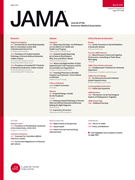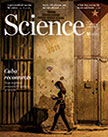 Have you seen our “unhelpful retraction notices” category, a motley collection of vague, misleading, and even information-free entries? We’d like to make it obsolete, and we need our readers’ help.
Have you seen our “unhelpful retraction notices” category, a motley collection of vague, misleading, and even information-free entries? We’d like to make it obsolete, and we need our readers’ help.
Here’s what we mean: Next month, Ivan will be traveling to Rio to take part in the World Conference on Research Integrity. One of his presentations is a set of proposed guidelines for retraction notices and their dissemination that we hope will inform publishing practices and severely limit the number of entries in our “unhelpful retraction notices” category. In September, for example, we announced that our guidelines would be linked from PRE-val, which “verifies for the end user that content has gone through the peer review process and provides information that is vital to assessing the quality of that process.”
Here’s a draft of our proposed guidelines, which include many of the items recommended by the Committee on Publication Ethics and the International Committee of Medical Journal Editors: Continue reading What should an ideal retraction notice look like?





